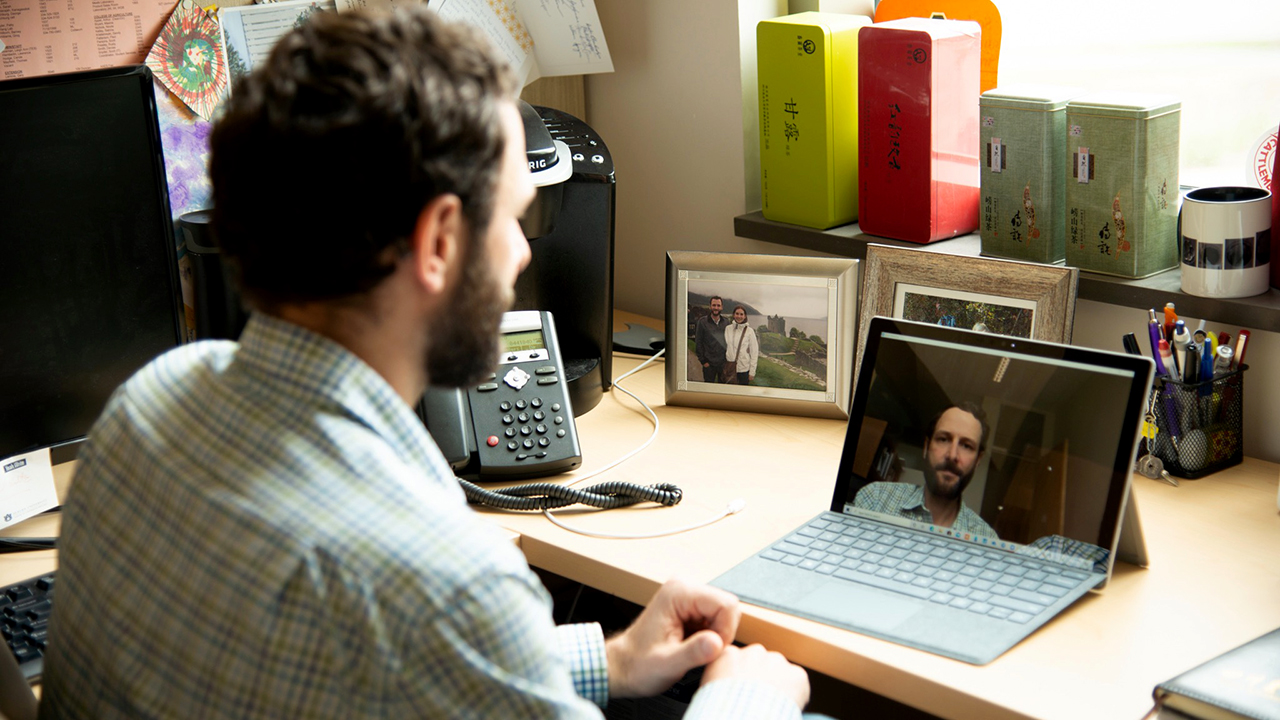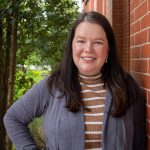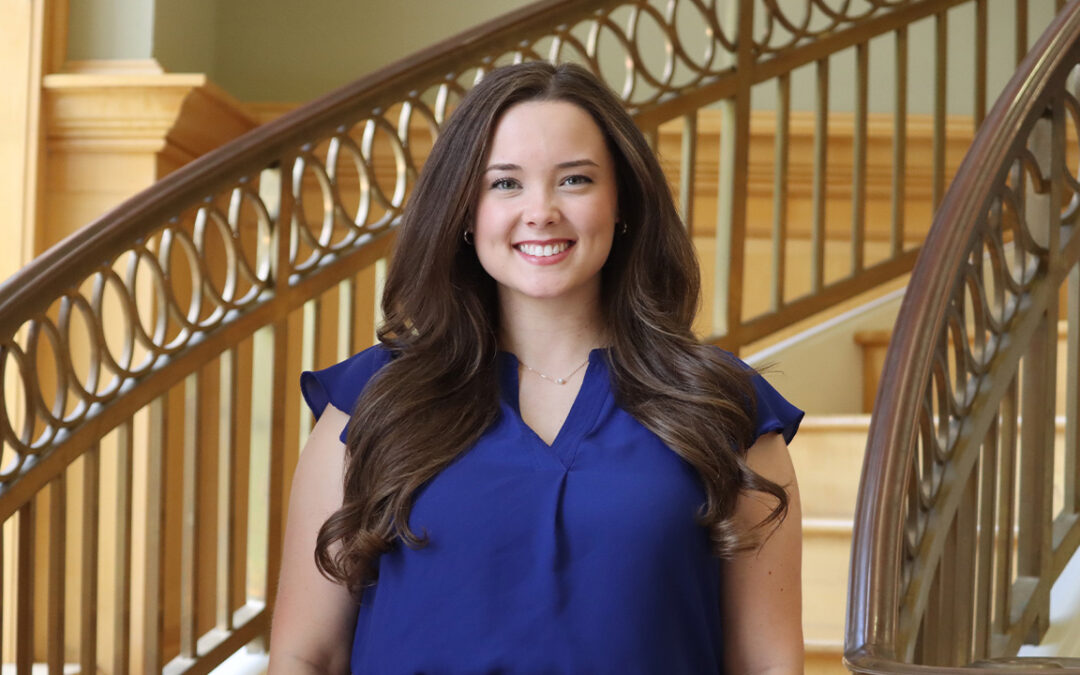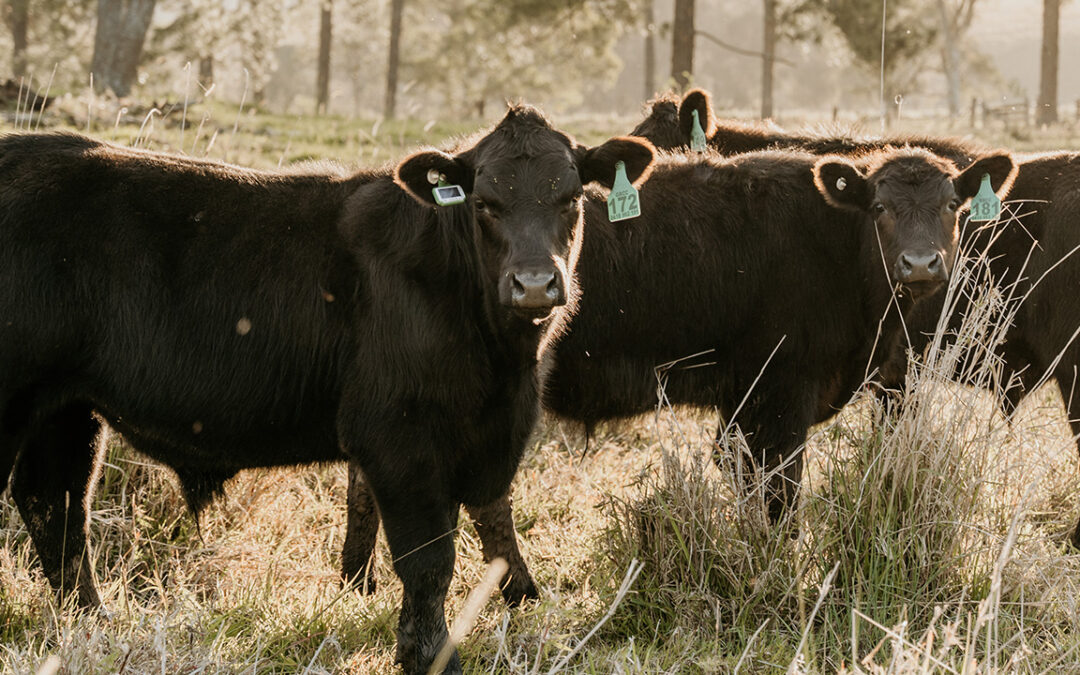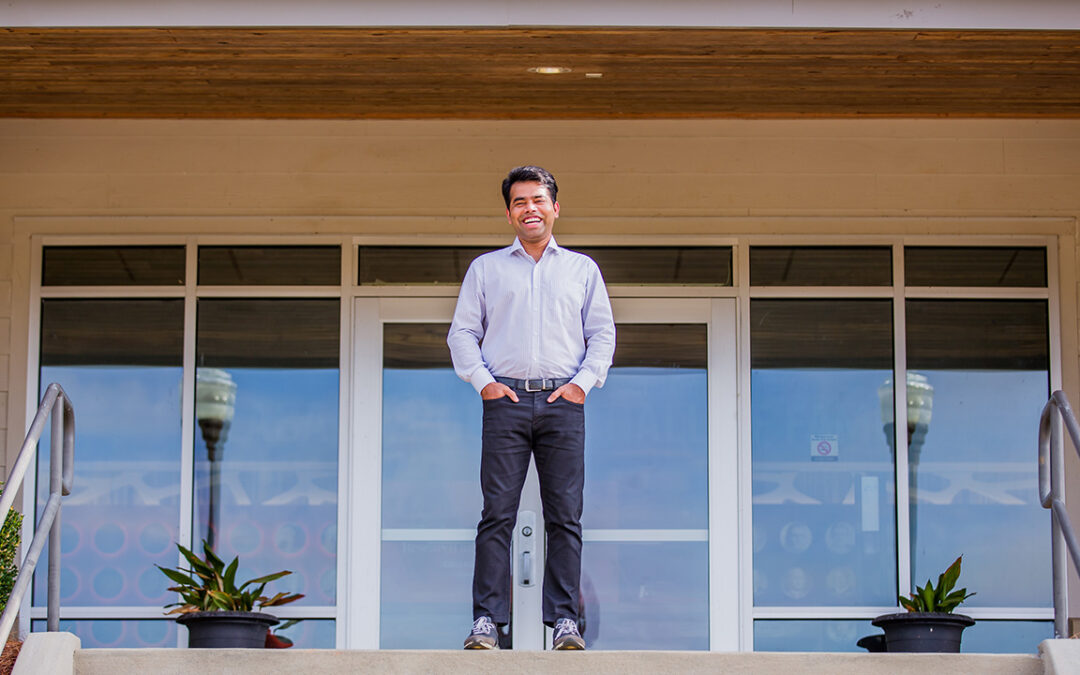By Kristen Bowman / Jun 16, 2020 9:49:41 AM
In the Classroom, College of Agriculture, Feature
When Auburn University students left for spring break, they didn’t know they were bringing their classrooms with them.
But as the novel coronavirus (COVID-19) outbreak took root in the United States, the university saw and responded to the need for alternate operations and classroom instruction.
“I was in Seattle for the second half of spring break,” said Jessie Curl, who was a senior in environmental science before she graduated in May. “I believe it was that Thursday, and my friends and I all got the email at the same time. It was pretty disappointing, though I kind of assumed it would happen.”
Over the ensuing weeks and months, students and faculty would flexibly adapt to the need for online instruction, advising, tutoring, meeting and much more.
Building the new classroom
The week of March 9, faculty were notified of the need to adapt their coursework for online instruction to start on March 16, a challenging task for many in the College of Agriculture. Yet they did so in a matter of days.
“Fortunately, for many years we’ve had in place a learning management system called Canvas,” said Amy Wright, associate dean for instruction in the College of Agriculture. “Even though many faculty weren’t currently teaching online, we have a lot of the technology for delivering content remotely, and those technologies work very well.”
Canvas allows educational institutions to build scalable online classrooms. But adapting coursework isn’t as simple as putting a syllabus and PowerPoints online.
“Much of the teaching we do in the College of Agriculture is very hands on — it’s in a lab or the field,” Wright said. “You can imagine the challenges of trying to deliver that type of content online. It’s not just a textbook and some principles. It’s experiments, research, projects. The challenge for us was to figure out how to do that.”
The first step was simply getting all course content into Canvas. This meant recording and uploading lectures or choosing to hold classes at their regularly scheduled times via Zoom.
“I probably preferred the live lectures, because they really forced me to be present and pay attention like I would normally,” said Brooke Johnson, senior in environmental science. “Though at the same time, I could rewatch the recorded lectures, which I found to be a good way to study. So there were pros and cons with both.”
Johnson said having some professors choose one method and others choose another meant she and her classmates had to adjust to an entirely new schedule.
“At the beginning especially, it was easy to forget about things,” she said. “You have this whole routine that doesn’t happen anymore. I didn’t log into my first 9 a.m. course because I just completely forgot about it. It didn’t cross my brain.”
Wright said she’s heard the same feedback from students.
“What I’ve learned, and what I think they’ve learned also in this, is that structure of coming onto campus every day at certain times, going to your classes, being among your peers and professors, they really missed that,” she said.
For students like Curl, returning home to their parents’ houses presented an unexpected challenge.
“Usually I’m there on breaks and vacations, when I don’t have to worry about doing schoolwork,” she said. “Instead, I was having to finish my degree with my parents in the next room.”
While instructors were starting to administer their coursework online, they next had to determine how best to proctor exams, take assignment submissions and grade online. Wright said this was perhaps the most challenging piece, because there are multiple technologies needed to do all these things.
“The Provost’s Office very kindly covered the cost of online exam proctoring that during this time,” she said.
Now that faculty are more settled into online instruction, the college is offering resources to faculty who need materials or equipment to refine and improve their online teaching, including workshops with the Biggio Center on campus addressing how to do what would typically be hands-on instruction online.
This remains a challenge for the college, though Wright said she is extremely proud of the innovation shown by instructors in this time.
“One of the classes I used to teach as a graduate student is plant identification,” Wright said. “You walk around campus and the instructor shows you a plant and all the key features you can use to identify it. It’s a very in-person, hands-on activity, and that’s the kind of thing you have to figure out how to put online. Our faculty have done an amazing job with those exact types of challenges.”
A clever club
Classroom instruction wasn’t the only environment affected by the COVID-19 outbreak. Both tutoring and advising also continued online, though Wright said she looks forward to those resuming in person when students and employees can return to campus.
Johnson said the online tutoring posed the greatest challenge for her.
“In Physics 2, I required some tutoring, and it was really difficult to switch from in-person tutoring to online tutoring,” she said. “And if you had questions for your professors, it wasn’t as easy to get in contact with them as it would be in a regular, in-person lecture. But I still count myself very lucky in the transition.”
Both Johnson and Curl had taken only one online course prior to the outbreak.
“I had taken a class called Active Auburn,” Curl said. “You wear wristbands and do have to do online assignments. But I hadn’t had exposure to online courses like the ones I was taking this semester.”
Students who typically benefited from participation in college clubs suddenly had to change the way they met and the materials they produced.
The graduate students of the F.S. Arant Entomology and Plant Pathology Club not only adapted but used the stay-at-home order as an opportunity to do even more.
For the children — and their parents — attempting school at home, the club offered 30-minute lessons on insects via Zoom every day for a week at the end of April.
“The credit goes to the club officers who brought me this great idea,” said Professor of Entomology David Held, the club faculty sponsor. “A student developed each lesson, then presented it to me and the other grad students for feedback. The responses so far have been great, and the presentations are also being archived for viewing after the live events.”
Each presentation reached as many as 25,000 people, and many included crafts and activities with a bug theme.
“This is Emma Kate and her drawing of a pitfall trap,” wrote one parent, who included a picture of her daughter proudly displaying her work. “She plans on helping her granddad build one in his garden. Thank you for the great lesson!”
The university announced in April that the alternate operations would continue through June 30. But Wright said she sees a use for these tools beyond the date everyone returns to campus.
Before anyone had heard of COVID-19, Wright had been encouraging faculty to start using Canvas for all their courses and to create online modules, even in their seated face-to-face classes.
“Because, for example, maybe there is a calculation you work in your class that can be somewhat challenging to master,” she said. “It could be helpful for students to watch you do that more than once, and if you have it recorded and posted in Canvas, it is a video they can watch any time.”
Wright said she sees this as an opportunity to give more flexibility in teaching and improve the quality of instruction. She hopes faculty will retain the online tools they’ve built and use them even when the world goes “back to normal.”
“A lot of the classes about which we used to say, ‘Oh, there’s no way we could teach that online,’ we now know, well, actually, yes we can,” Wright said. “And maybe that is a way in the future to reach more students.”

